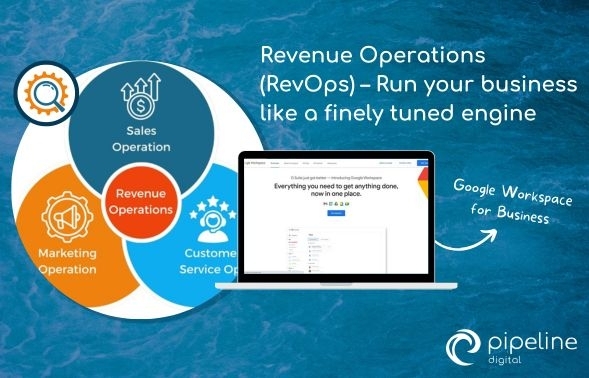Minding Your Business (MYB) offers Mental Health First Aid (MHFA) England training and bespoke mental health and wellness courses, presented both online via webinars, and in person. All profits from MYB go to ESRA Limited, a mental health charity (number 281004) which focuses on getting people back into work, or remaining in work, after suffering from mental ill health.
In these challenging times, where many of us are working from home, maybe feeling isolated or dealing with unusual circumstances and ill health, either of our own or others, we should never worry about asking for help.
In this article, we look at the issues that furloughed staff may be experiencing and how employers can support them.
Furloughing & the Job Retention Scheme
There has been a massive financial impact on businesses in the UK due to this virus outbreak, and the government has set up the Coronavirus Job Retention Scheme so that companies can retain their staff whilst they are unable to work. The Job Retention Scheme allows employers to obtain grants from HMRC to cover 80% of a staff member's pay-rolled wage, up to a maximum of £2500.00 per worker per month, and the employee must have been on the company's PAYE payroll since 19 March 2020. Currently the scheme is set up until the end of June 2020.
Who can be furloughed?
'To be furloughed' wasn't a familiar term until recently. It describes employees being temporarily laid-off. In this current coronavirus lockdown, if there is no work, then an employee may be furloughed for at least three weeks, although if there is work, even if it is for reduced hours, the employee should not be furloughed. The employer will need to prove that there is no work for specific employees to do due to the lockdown, and the employee should not take on any work for their company whilst being furloughed. For people with more than one job, they may be furloughed from each job, and a furloughed employee may be eligible to the scheme if they work full-time, part-time, or are on a flexible or zero-hours contract.
The effects of being furloughed
Some people will love the idea of being furloughed due to the coronavirus, as they suddenly get to spend more time at home, maybe with their children, or they can support a shielded or vulnerable family member, and start working through their home 'to do' list. This isn't the same for everyone though, as some will find the forced lack of contact difficult to adjust to and may start to feel isolated and worried. We need to recognise that feelings are different for everyone, and understand that it is okay for people to have 'bad' or 'off' days!
Once all of the books have been read, new exercises tried, house/flat cleaned, garden beautiful and the floor hoovered - again - reality may hit and the happy or resigned feelings relating to being furloughed, may start to change. The furloughed may start to worry if they have a job to go back to when the business reopens, and if there is a job, will it be the same as before? A choice may have had to have been made by the employer between two or more staff, as to who is to remain working and who is to be furloughed. What does the furloughed staff member think of this? Maybe they start to doubt their worth and abilities, and feel under-valued? The working staff may be envious of the furloughed staff because they are being 'paid' to stay at home and can do whatever they want!? The furloughed employee may start to feel lonely and isolated, and worry about their finances.
So how do you as the manager, employer or employee deal with these situations?
Supporting the staff who are furloughed
We know that these worrying times can cause poor sleep and excessive eating resulting in lack of energy, and that this in turn may cause unease, anxiety and depression. It is now that employers must be insightful and proactive in offering support to their staff so that when their employees start to return to work, that they transition well, feel confident and are at ease on their return.
It is incredibly important that through every step of this furloughed period, that the employer is clear, open and honest, and explains why they are making various decisions. Promises should only be made if they can be kept, and everyone should be mindful of each other's different emotion levels.
Why not write small, regular updates on a company blog or circulate group emails to help the staff feel involved and recognised as part of the team, even if they are not working? Give your colleagues a call and have a chat about how they feel and ask how they are coping. How about organising meetings with the furloughed staff before they return, to discuss any changes to the business and working conditions that involve them, so they feel prepared?
Remember that there has been a lot of sickness and death since the coronavirus pandemic started, and your staff, may have been affected by this; someone close to them could have become ill, or may have died. Anyone could be struggling to come to terms with the enormity of the problems that surround us and feel anxious even to leave their home! And remember yourself in this, illness and death may have affected you too - don't be afraid to ask for help!
Considerations of the furloughed staff - food & medication
By keeping in touch with furloughed staff, employers can ask if there is anything that they need help with? Do they have underlying health problems - and if so, how are they coping with getting food and their medication? If there is a problem, can you direct them to their local council or charities who are organising food parcels and prescription deliveries? The employer should try to be informed about support available and how to access it.
Considerations of the furloughed staff - home situations
How is everyone at home? Has everyone been well? Is there a problem with finances caused by the pandemic? Are home relations good? Were you previously aware of warning signs, and are you now worried? Be aware of the charities and organisations that are available to help (details within this newsletter). To support doesn't mean to take on the worries of your staff, but being able to sign post is empowering for the employer and will allow the employee to see that they are valued.
Company Employee Assistance Programme (EAP) support
Furloughed staff can still access their EAP (if they have one), so ensure that they know how to do this. Many EAPs, like Unum, provide advice and counselling too. Check their extremely informative websites and encourage staff to use them - maybe see if there is any covid specific support on offer?
How to support furloughed staff
Do have one to one meetings (WhatsApp is a great platform for this) through the lockdown, as previously mentioned. How about a phone call every week or two? Making a connection and keeping in touch, will help to gauge how the staff are coping and make them feel less isolated and lonely. Online group meetings for furloughed staff is another option. Give them topics to discuss, such as what they want to achieve whilst at home and how they can achieve it. The group could also give each other support, with these meetings being 'chaired' by the company's Mental Health First Aiders…
As the furloughed staff will most likely have more time available to them, suggest that they look at areas where they can expand their knowledge and learn. There is currently a huge choice of online courses and webinars available, teaching anything from jewellery making to learning about LinkedIn, from baking cakes to learning a new language, money & business courses to developing career resilience - and so much more!
Do you have trainers in the business who could run an interactive group webinar about looking after personal finances, so that staff can discuss any financial worries and be reminded of any benefits open to them and who they can turn to help to pay bills if struggling? Finances will be a key concern to most.
Supporting employee's wellbeing
From full-time career to full-time carer - from feeling contented in a busy job which is purposeful, to lack of purpose and routine - from a busy, fulfilling sociable life, to rarely meeting people and watching every penny spent as the future is uncertain. Furloughed and working staff may find that their emotions become accentuated because of the lockdown situation; feelings such as anxiety, stress and restlessness, which can have quite a negative impact on health and wellbeing, may appear for the first time, and they may not know how to deal with them. The employer should look at what can be done, where they can turn and what advice can be suggested, for example:
• EAP - Ensure all staff have access to the contact information and web pages for the company's EAP, and ensure that everyone is aware of any specialist webinars and covid specific support
• Every Mind Matters (NHS) - Lots of practical tips and expert advice supported by the NHS to help everyone relax and achieve more, and enjoy their lives. www.nhs.uk/oneyou/every-mind-matters
• Encourage routine - we take this for granted in our 'usual' life, but it can really help when times are tough. Good routine should include healthy eating, keeping hydrated, exercising, using technology (and knowing when to switch it off), and making sure that any information they seek is from a well-known source - beware of fake news!
• Talk - if staff are anxious or worried, remember that it is a difficult time for everyone, and that sharing feelings (yours and theirs) and personal tips on overcoming various situations, can be really helpful. Look on the following pages for details of support websites and apps.
• Look after physical health too - this goes hand in hand with mental health! Daily exercise should be embraced, with doctors recommending at least 15 minutes outdoors. Walking, running, cycling, online exercise, dance classes and charity raising exploits - there are endless possibilities! And enjoy the daily hour of exercise!
• Keep connected - By telephone, Zoom, Houseparty, text, WhatsApp video. Why not suggest that they reconnect with at least one person who they haven't seen recently, every week? When outside for brief exercise, say hello to those you pass.
• Suggest volunteer roles - there is no feeling like helping someone else! Suggest that staff contact local charities or groups to see if they can help, with opportunities to man support hotlines, delivering food parcels and prescriptions to those being shielded or vulnerable, as well as posting mail and even walking dogs for the neighbours! Be aware of furlough rules relating to voluntary work.
• Learn - Learn a new skill or language, and come out of this lockdown with a sense of achievement!
• Mindfulness - Poor sleep, restlessness and being tired are all side effects of needing to remain at home. There are a number of Apps offering help to start practicing mindfulness like calm.com and headspace.
Any guarantees?
Once the furlough period ends, companies do not need to keep any of their employees, and it should be noted that employers are not allowed to use the furlough payments to subsidise the redundancy packages. All staff will be hoping that at the end of the scheme, with restrictions lifted, that they can return to their businesses on full salaries again. As an employer, make sure you manage the employee's expectations honestly and sensitively.



















